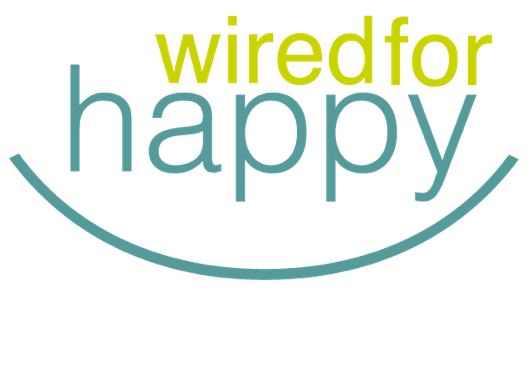 When you feel unhappy, angry or anxious, there’s two behavioral options.
When you feel unhappy, angry or anxious, there’s two behavioral options.
One involves introspection: why do I continue feeling this way and what changes do I need to make?)
The other invites escape (how do I stop these feelings NOW!? Think overeating, drugs, or sex with the wrong person).
Knowing which road you should take is easy. Implementing that change is hard. Which is why many people choose self-medication over execution.
The problem is too many of us act habitually when feeling uncomfortable. Case in point, (emails I get far too often): “Linda, I read your article XYZ, and it resonated. But please explain why I still do ABC when anxious? I’m sick and tired of my negative thoughts running my life!”
Speaking of loose boundaries (and state licensure infractions), I’m always amazed when people ask me to psychoanalyze them upon reading a few sentences of their life story. Even if I had the requisite fairy dust to make this person’s anxiety disappear with a couple pithy paragraphs, would this actually help long-term?
Alas, to make my point with an awful quote, ‘there’s many ways to skin a cat.’ Boundaries are the key to happiness, healthy relationships and all that defines confidence and self-worth.
In short, boundaries mean deciding when and what to say no to every day. It’s taking into account your 24-hour time span, energy levels, morals, obligations etc.
- Am I going to kickboxing class at 10 a.m. or writing a blog about boundaries?
- If I buy that tub of Trader Joe’s Belgian Chocolate pudding am I likely to eat it in one sitting, or should I think of pink unicorns right about now?
- If I act on my co-worker’s obvious signs of sexual attraction, how will that affect my marriage?
As a psychotherapist, my struggle with helping clients define healthy boundaries is deciding where to begin. One critical misstep and I risk losing momentum, or worse, the therapeutic relationship. Because suggesting, ‘Hmm, why do you think you fell for this person…again?’ implies ego strength, self-awareness and psychological insight.
The classic struggle for many a boundaries-challenged person is answering ‘where do I end and where does this other person begin?’ Enmeshment is a sign of unhealthy relationship boundaries, while staying chronically single indicates too stringent a boundary.
In the clinical realm, boundaries do not stick until other mental health habits are in place. For example,
1. Defining the difference between anxieties and fears,
2. Knowing the steps to de-escalate from a stressful situation,
3. Changing thoughts.
For a detailed article from Psychology Today around the steps to using deep-breathing, meditation, mindfulness and other ways of calming an overactive mind, click here.
Changing your thought process is a must. Deferring to my clinical observations once again, this step doesn’t happen (or happen enough) until you learn to recognize your body’s stress signals. For the second most popular article from Wired for Happy about using the principles of Cognitive-Behavioral Therapy to get better, go here.
Breathe.
Boundary building takes time. More to come around setting limits on the blog. In the meantime, here’s some psychological hacks to chew on:
Random Boundary Busters
• The opposite of indecision is confidence
• No is the second most beautiful word in the world
• Anxiety is not always a bad thing
• When lost, remember you’re never far from home
• You are good enough
• “I’m not the cause, and I’m not the cure” is a great internal script when dealing with mean people
• Feeling sorry for people hijacks their ability to figure it out
• Six-figure salaries and professional accolades don’t hold a candle to the job of raising emotionally healthy children
• “I love my therapist!” are words you never want to say or hear
• Embracing vulnerability is difficult but essential for emotional growth and deeper relationships
• Sometimes fences make the best neighbors
• Nobody ever died from their feelings
• You have a finite amount of emotional energy every day and unused minutes do not roll over
• People lead incredibly busy lives so be judicious with their time
• The simplest way to get a read on someone is to observe their behaviors
• You will find sickness if you don’t discover the Healthy Foods aisle
• Drama is best left for the stage
• Children have one shot at childhood
• You create your reality through your thoughts, emotions and behaviors
• Humor helps any situation
• Belief in abundance over scarcity reassures that there’s enough money, opportunities and experiences to go around
• “I don’t have time” is the cousin of “You’re not important.”
• A good attitude is the easiest way to avoid excessive time on the couch (the Freudian one)
• Social skills are underrated
• A narcissist cannot invade your space unless you open the door
(…Ahhh, that last one 😮)
The ultimate goal for choosing healthy boundaries is drawing the appropriate amount of space around who and what to allow in your life, and who and what to exclude. Otherwise your line is hella squiggly and creating unnecessary stress and anxiety in your life and in your relationships.
###
If you enjoyed this article, I’d be most appreciative if you share it on social media or email it to a friend.
Yours in saying no when appropriate,
—Linda Esposito
::
Support Wired for Happy
Recently Wired for Happy topped the 10,000 visitors per monthly average metric, which is awesome! Gratitude to you and the community of people who read, listen and share the mental wellness. I’m so grateful you’re here and part of this, and for anyone who has supported this blog in any way over the past year – thank you so much.
If you (or your central nervous system 😉) would like to show your support, head over here to make a small one-time or monthly donation (as little as $1) and know that any amount makes a huge difference to cover costs and enable me to keep on, keepin’ on.
Most importantly, thanks for being here!








